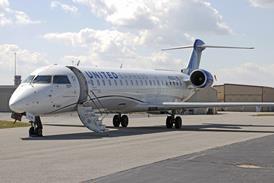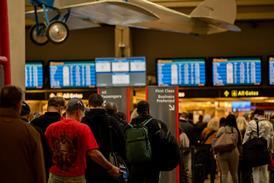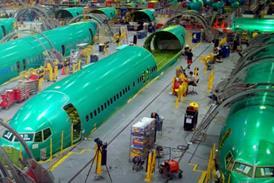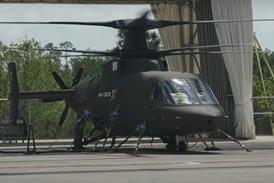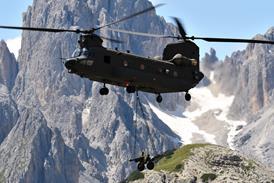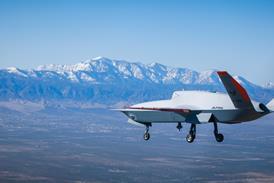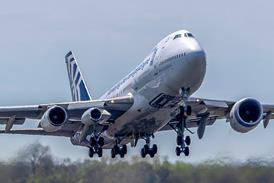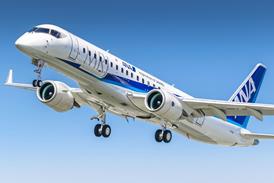BAE Systems' 2012 financial results underscored the austerity-era challenges facing arms makers, as sales dipped 7% to £17.8 billion ($27.2 billion) and pre-tax profits slipped nearly 6% to £1.41 billion.
Bright spots in the last year's performance and the outlook for 2013 sit mostly outside of BAE's core UK and US markets, with much expectation being placed on a 2013 resumption of Eurofighter Typhoon deliveries to Saudi Arabia.
Even in its cyber and intelligence segment, on which BAE has placed much strategic focus, sales were essentially flat in 2012 and are expected to fall this year.
In the US - which accounted for about 40% of group sales but where business is facing what BAE describes as the "dual pressure of reduced activity in support of deployed operations in Iraq and Afghanistan, and measures to reduce US federal budget deficits" - sales were down 14% at £4.54 billion and are expected to drop by 10% this year. Highlighting the US military spending trend, land vehicle sales peaked in 2008, adds BAE.
But even in its home market of the UK, which includes its aircraft business for European militaries as well as the Salam contract supplying Typhoons to Saudi Arabia, sales were down 9% to £5.65 billion. That business is expected to record 25% sales growth in 2013 - assuming that ongoing price increase negotiations with the Saudis are concluded successfully and deliveries recommence as expected following a contract amendment made in 2012 to enable UK final assembly of the balance of 48 aircraft under the original contract for 72.
BAE finished 2012 with an 8% increase in its order backlog, at £42.4 billion. But nearly a quarter of that total is now accounted for by non-UK and US business - where the backlog more than doubled to £11.2 billion, from £4.8 billion at the close of 2011.
One significant bright spot, however, is in the evolution of the company's business from an equipment supply-centred model to one that "now embraces a services culture"; in 2012, half of sales were "generated in services across a wide range of activities and geographies".
Highlights of 2012 included a deal, agreed in December, to supply Oman with 12 Typhoon Tranche 3 fighters and eight Hawk advanced jet trainer aircraft, for deliveries from 2017. Full-year results reveal the contract to be worth £2.5 billion.
And, BAE-Sagem joint venture FADEC International in November teamed up with General Electric to develop and supply full authority digital electronic controls for the next-generation Leap engine series by GE-Snecma joint venture CFM International as well as GE's new Passport family of business jet powerplants.
The Leap is one option to power the Airbus A320neo and the exclusive engine for the Boeing 737 Max and the Comac C919. Passport will power Bombardier's Global 7000 and Global 8000. All five of the aircraft are expected to enter service between 2015 and 2018.
FADEC International currently supplies the system for the CFM56, which also powers the current generation 737 and A320.
Source: Flight International

